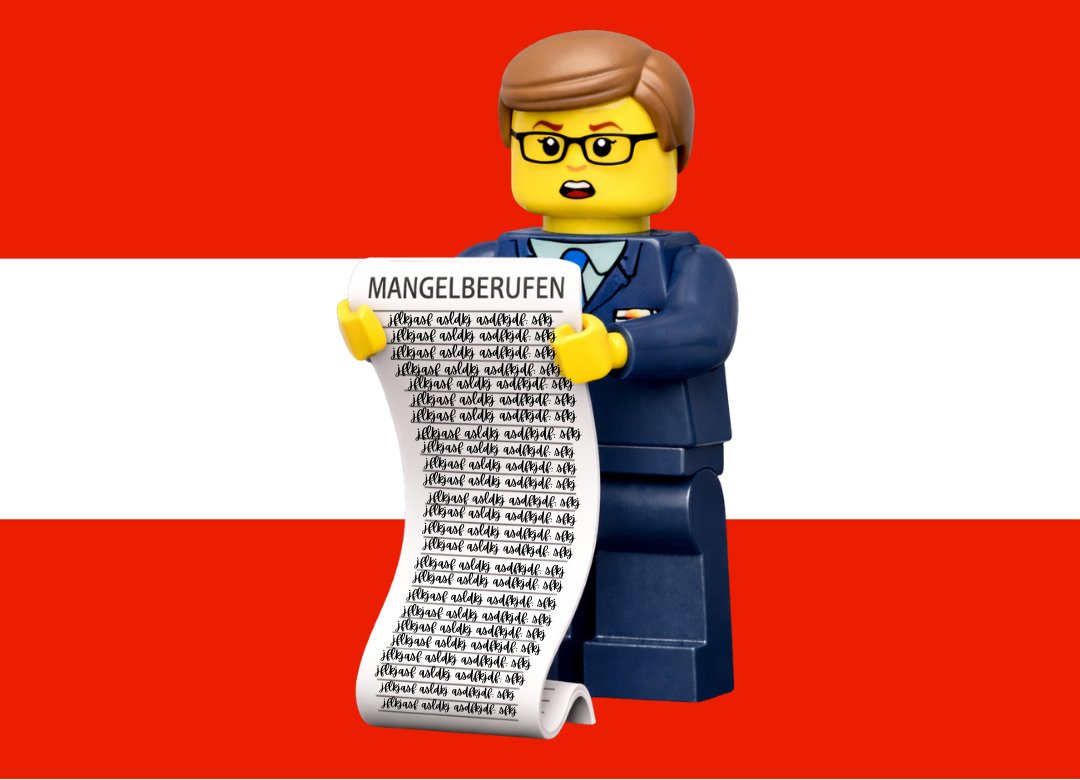In this interview, partners of Recom Relocation Angelika Brenner-Cecerle and Martine Pey talk about new regulations regarding work and residence permits in Austria. You should continue reading if you are planning to relocate to Austria, especially as an employee.
Beginning with the 1st of October 2022, an amendment to the employment of third-country nationals applies. Austrian Minister of Labour and Economy Martin Kocher has announced it with a “better, further, quicker” slogan. Let’s find out more about it.So, which permits have changed?
The amendment applies to work and residence permits called Red-white-red card and Blue card EU. There are also some improvements regarding family reunification for spouses and children of employees with these permits. All other kinds of permits remain the same.
What are the exact differences now?
One of the improvements is that IT professionals do not require a degree in this field. Since Austria lacks many IT specialists, they have made the rule less strict: jobseekers who studied something completely different and have acquired their IT skills with practice or by attending online courses, etc. This is, obviously, not comparable to a university degree, so many applications have been declined, and skilled employees could not proceed with their job in Austria.
Another piece of good news is that the red-white-blue and blue-card EU residence permits can now be obtained with any type of visa. A specific visa that has the category “D” is not a must anymore and saves plenty of time (around a month or even longer).
Does an application go faster from now on?
It has been officially announced that the application for a Blue Card EU will only take 14 days at the labor office. There is yet no proof of that, nor are there statistics, but we are looking forward to this improvement specifically, as time is one of the burning questions for our clients. There has not been any news on the red-white-red card in this sense.
How about family members?
Family members’ permits are called red-white-red-plus cards and are now issued for two years as the employees’ cards. Previously, there was a difference that led to extra difficulties and costs for renewals.
Apart from that, employers can apply for both employees and their family members. Before, the families had to apply separately at the responsible embassy or in Vienna on their own, which caused longer gaps between employee’s and family’s permits.
What will remain the same?
All permits except for Red-white-red and Blue Card EU are processed as before, for example, the ICT, which stands for intercorporate transfer. We wish there were more improvements, and they will hopefully come in the future.
As for other types of permits, nothing has changed either. So, if you are, for example, moving to Vienna as a student, the old rules are still up-to-date.
Is there anything that makes the application more complicated than before?
Now, you should carefully differentiate between specific types of permits so as not to run into any problems. Also, the rules for family members might seem confusing, so check the official website to avoid mistakes.
What are the main changes to red-white-red permits?
The red-white-red card is only entitled if employees reach 55 points according to a specific system. This system now varies between the red-white-red “skilled workers in shortage occupations” and the so-called “other key workers”. Previously, they were the same. The system is now a bit easier for those planning to work in shortage occupations, namely:
- 5 points for ages between 40 and 50 years old;
- 5 bonus points for English as a corporate language, but only if you already have a certificate in English;
- 5 extra points for English as a corporate language, but only if you have an English certificate already;
- 1 point for each half year of experience instead of counting full years only.
Other key workers can, unfortunately, only profit from the last improvement.
What is your overall opinion on the changes?
Some things did indeed get better, some did not, and many things should still be defined because not everything has been clearly announced from the beginning. The reform has advanced foreign employment law, but not to the extent we had hoped. Such reforms usually take place once in 5–7 years, and we hope that it will only get better.
Immigration matters require a substantial amount of concentration and expertise, so talk to a Recom immigration expert if you want to find out more about your potential opportunities to settle in Austria.


%20(800%20%C3%97%20201px)%20(1200%20%C3%97%20300px)-1.png?width=284&height=71&name=TALK%20TO%20AN%20EXPERT%20(400%20%C3%97%20100px)%20(800%20%C3%97%20201px)%20(1200%20%C3%97%20300px)-1.png)


